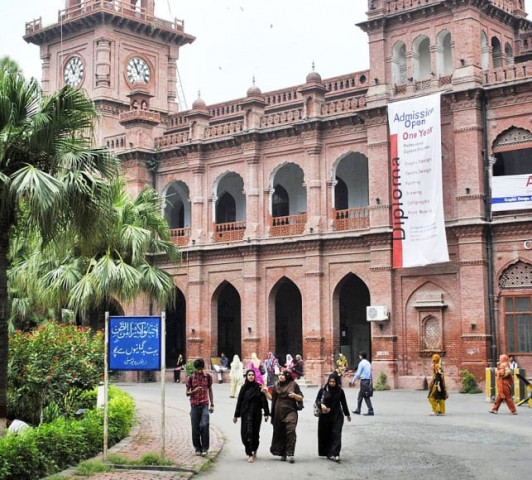Guess paper culture hinders academic learning
Experts believe reliance on past papers hinders critical thinking, creative analysis, and problem-solving abilities.

The Board of Intermediate and Secondary Education (BISE) Lahore has imposed a ban on sharing five-year guess papers on social media. However, despite this restriction, guess papers for various classes are readily available in the market, and students continue to rely on them to achieve high marks in their exams.
Students who, for any reason, are unable to complete their syllabus often turn to these guess papers to identify which questions have been repeatedly asked in different subjects over the past five years and which important topics from the syllabus were included in exam papers. In their opinion, preparing this way makes it easier to obtain passing marks.
Umme Rubab, a second-year student, believed that if the educational curriculum were better and the teaching methods were more effective, students would not have to rely on guess papers. “In fact, some teachers even advise students to buy guess papers, thinking that student success would also reflect positively on their own performance,” informed Rubab.
Likewise, Ali Hamza, who appeared for the matriculation exams last month, revealed that 80 per cent of the questions in the Mathematics and English exams were the same as those he had prepared for from the guess papers. “This is especially true for the objective-type questions which are easier to memorize,” said Hamza.
Where the reliance on guess papers has become ingrained in the educational system, experts have differing opinions on how it impacts students’ creative abilities. Professor Dr Iftikhar Ahmed, former Chairman of the Department of Education at the University of Punjab, emphasized the fact that guess papers were merely encouraging rote learning. “This type of learning negatively affects students’ critical thinking, creative analysis, and problem-solving abilities. When students prepare only for expected questions, they miss out on comprehensive study,” highlighted Dr Ahmed.
Similarly, Sarah Javed, an educational consultant, opined that if five-year papers were used in a balanced manner within lesson planning, they could be beneficial. “Unfortunately, however, educational institutions often treat them as a substitute for the curriculum. This style of teaching eliminates any room for students to practice their creativity,” said Javed.
Abdul Rehman, principal of a government higher secondary school in Lahore, believed that in order to foster creativity among students, it was essential to ask questions that required thought and analysis. “Preparation based on guess papers contradicts this approach,” said Rehman.
Hence, most educational experts agree that relying on guess papers and past papers hinders the development of students' creative abilities. To reduce this trend, it is important to introduce diversity in curriculum teaching, analytical questions, and creative activities.
Looking at the examination results of the BISE Lahore, the success rate of candidates in the matriculation examination in 2020 was 71.51 per cent. In 2021 this rate increased to 98.25 per cent, in 2022 it reached 66.37 per cent, in 2023 it was 74.57 per cent and in 2024 the success rate of successful candidates was 69.75 per cent. Similarly, the success rate of candidates in the intermediate exams in 2024 was 60.45 per cent, in 2023 it was 58.67 per cent, and in 2022 it was 77.40 per cent.
On the other hand, in March 2025, Chairman Lahore Board Zaid Bin Maqsood had issued a letter to the heads of all government and private educational institutions, stating that teachers were running different WhatsApp groups, in which question papers related to Lahore Board examinations, guess papers and marking schemes were distributed. This is a punishable offense according to the amended Act of 1999 and the persons involved can be punished with imprisonment for up to 3 years and a fine of Rs50,000. Therefore, the heads of educational institutions should prevent their teachers from sharing Lahore Board question papers in WhatsApp groups.






1724319076-0/Untitled-design-(5)1724319076-0-208x130.webp)












COMMENTS
Comments are moderated and generally will be posted if they are on-topic and not abusive.
For more information, please see our Comments FAQ